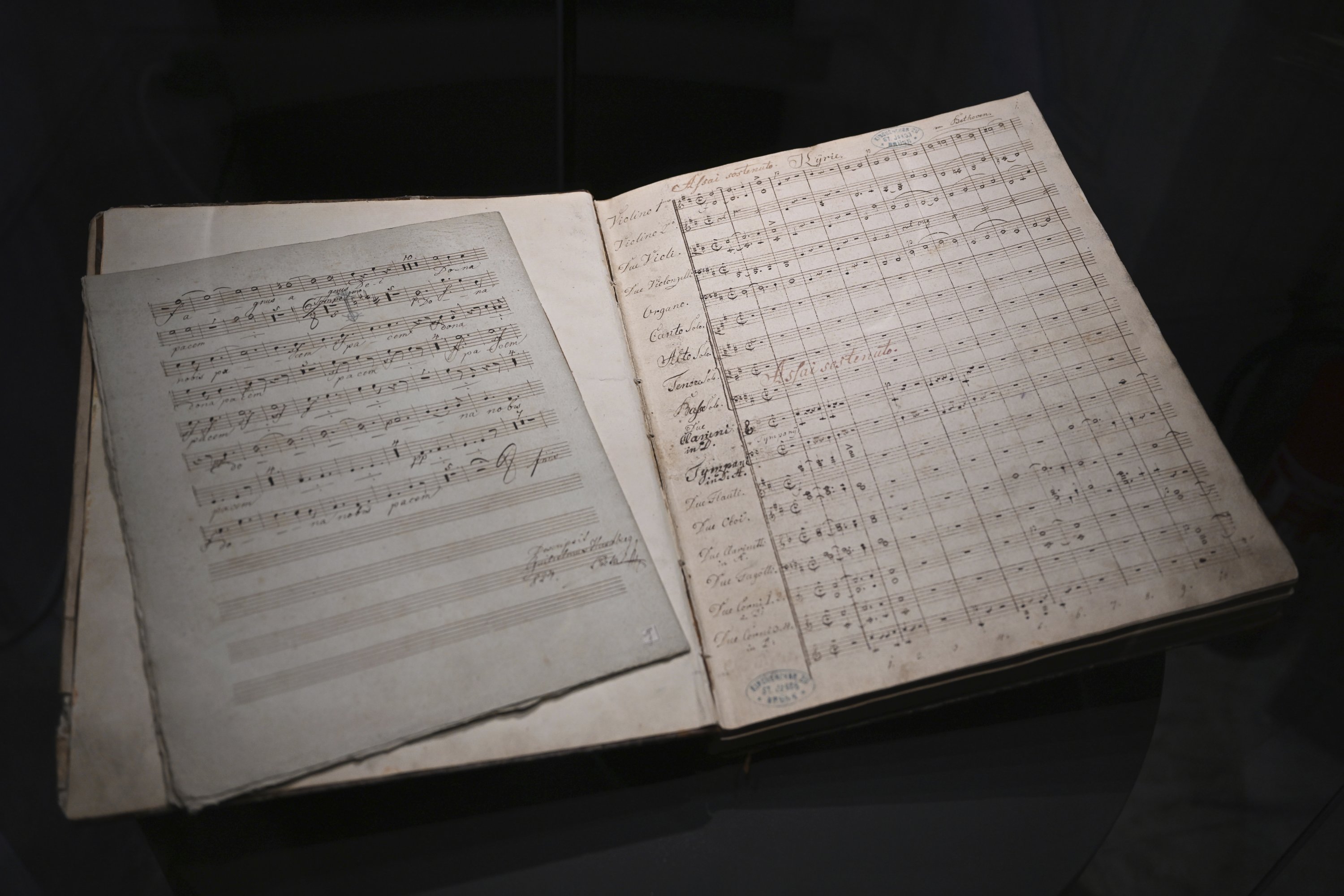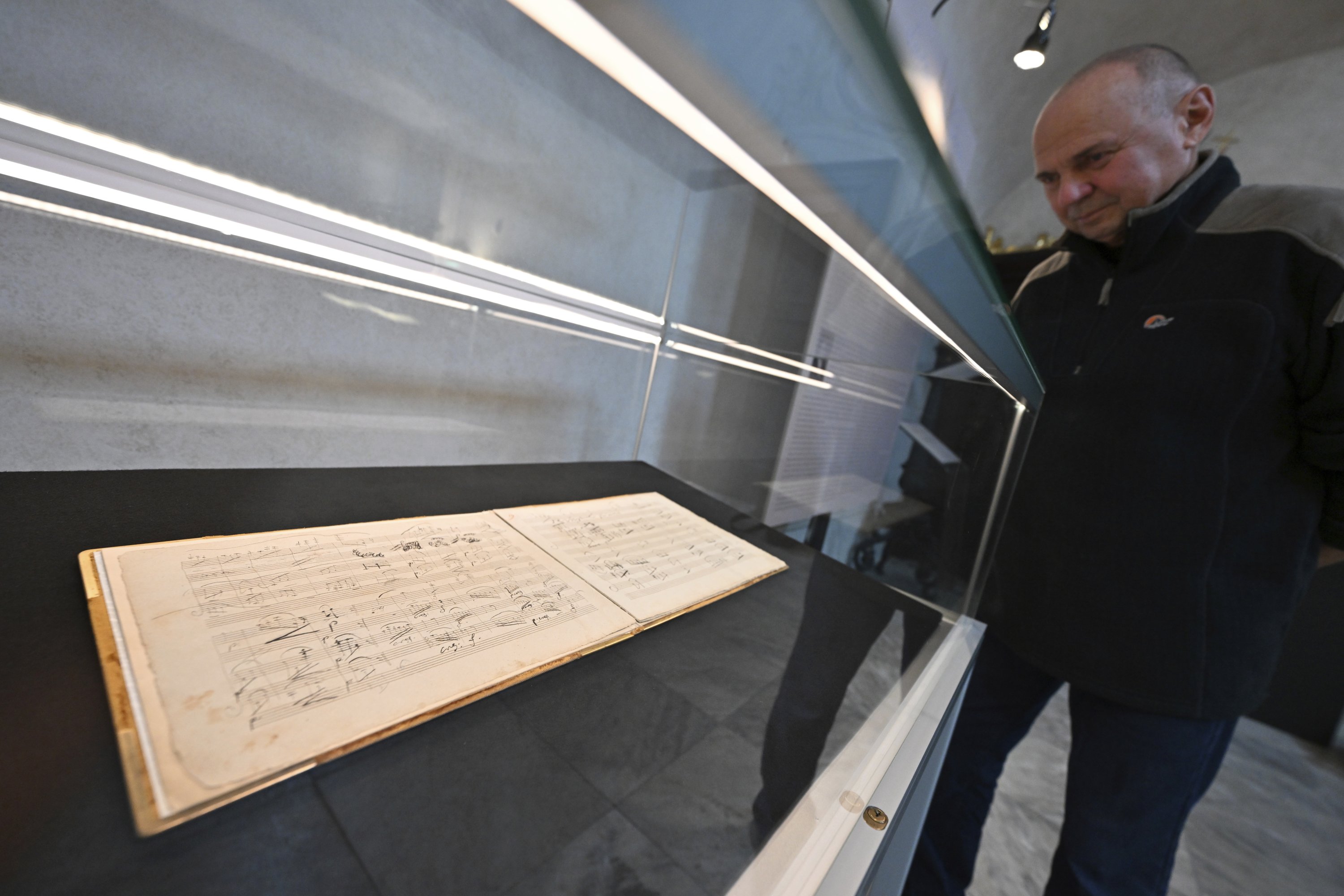© Turkuvaz Haberleşme ve Yayıncılık 2026
World renowned genius composer Ludwig van Beethoven's handwritten musical manuscript to return to the heirs of the richest family in pre-World War II Czechoslovakia as they had to flee the country to escape the Holocaust.
The Moravian Museum in the Czech city of Brno has the original manuscript for the fourth movement of Beethoven’s String Quartet n B-flat Major, Op. 130 in its collection for more than 80 years. The museum put the score on display for the first time this week in anticipation of handing it over to its rightful owners.
“It’s one of the most precious items in our collections,” museum curator Simona Sindelarova said.

The museum said a restitution law on property stolen by German Nazis made the return possible. Details about how the family, whose wealth came mainly from the mining industry and banking in Central Europe, after World War I acquired the piece from one of the German composer’s late quartets are unknown.
Beethoven composed the six-movement String Quartet in B-flat Major in 1825 -1826 as part of his work on a series of quartets commissioned by Russian Prince Nicholas Galitzin. It premiered in March 1826 at the Musikverein concert hall in Vienna, Austria.
Museums, archives and libraries in the Czech Republic, France, Germany, Poland and the United States currently have almost 300 pages of the entire autograph in their possession.
It’s known that Beethoven, who died in 1827, gave the fourth movement to his secretary, Karl Holz, and at least two other private owners in Vienna acquired it before the Petscheks.
The family tried but failed to send the manuscript abroad by mail in March 1939 during the Nazi occupation of Czechoslovakia, drawing the attention of the Gestapo.

From his new home in the United States, Franz Petschek, who had run the family’s mining businesses in Czechoslovakia, tried to get the piece back but was unsuccessful due to the postwar division in Europe and the creation of the Iron Curtain.
The Moravian Museum signed a deal on Aug. 3 to transfer the ownership of the manuscript to his heirs. However, other families with claims to property and valuable items lost during World War II are still waiting for their cases to be resolved.
